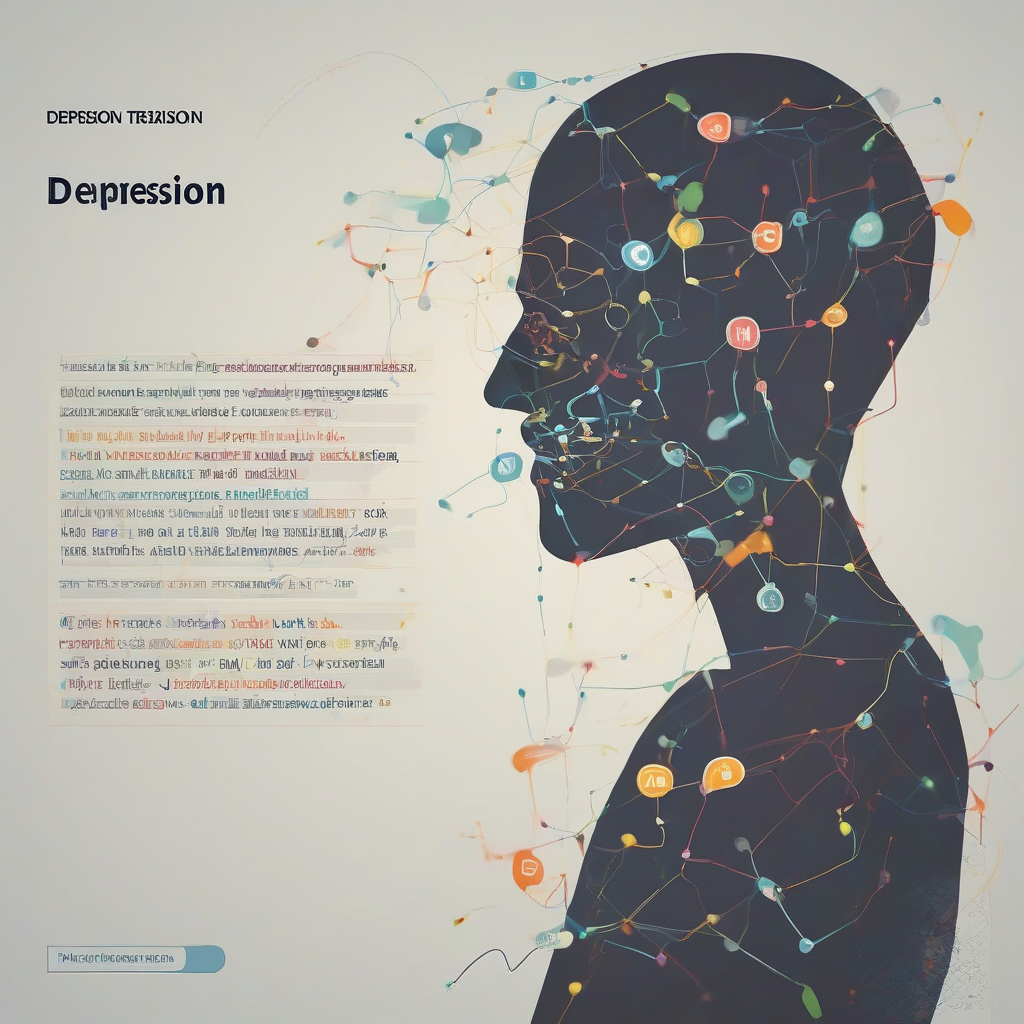Navigating the Digital Landscape: A Comprehensive Guide to Online Depression Treatment
The rising prevalence of depression, coupled with evolving technology, has spurred significant growth in online treatment options. This comprehensive guide explores the various avenues of online depression treatment, their effectiveness, accessibility, limitations, and crucial considerations for individuals seeking support.
Types of Online Depression Treatment
Online treatment for depression encompasses a broad spectrum of approaches, each with its unique advantages and disadvantages. Understanding these variations is essential for making informed decisions about your care.
1. Online Therapy (Teletherapy):
This involves virtual sessions with licensed therapists, typically conducted via video conferencing platforms. It mirrors traditional in-person therapy but offers greater convenience and flexibility.
- Advantages: Increased accessibility, reduced travel time and costs, comfort of home environment, broader choice of therapists.
- Disadvantages: Potential for technological glitches, lack of face-to-face interaction, challenges in establishing rapport, privacy concerns.
2. Self-Help Apps and Programs:
Numerous mobile apps and online programs provide guided exercises, cognitive behavioral therapy (CBT) techniques, and mindfulness practices to manage depressive symptoms. These are often used in conjunction with professional therapy or as a supplementary tool.
- Advantages: Affordability, accessibility, anonymity, convenient self-paced learning.
- Disadvantages: Limited personalized support, potential for misuse or inaccurate information, lack of professional oversight, may not be suitable for severe depression.
3. Online Support Groups and Communities:
Connecting with others who understand the challenges of depression can be incredibly valuable. Online forums, social media groups, and dedicated websites offer peer support and a sense of community.
- Advantages: Shared experiences, validation, feeling less alone, practical advice from others.
- Disadvantages: Potential for misinformation, lack of professional guidance, risk of triggering or exacerbating symptoms, anonymity can lead to less accountability.
4. Online Cognitive Behavioral Therapy (CBT):
CBT is a widely effective therapy for depression, and many online platforms offer structured CBT programs, often with therapist support via messaging or scheduled sessions.
- Advantages: Evidence-based approach, structured curriculum, potential for self-management skills.
- Disadvantages: Requires commitment and self-discipline, may not be suitable for all individuals, less personalized than one-on-one therapy.
Effectiveness of Online Depression Treatment
Numerous studies have demonstrated the efficacy of online depression treatment, particularly for milder to moderate cases. The effectiveness varies depending on the type of treatment, the individual’s needs, and the level of engagement. While online therapy can be as effective as in-person therapy for many, it’s crucial to find a suitable modality and practitioner.
Research suggests that online CBT, particularly when combined with therapist support, shows promising results. Self-help apps can be beneficial as supplementary tools, enhancing adherence to treatment plans and promoting self-management strategies. However, for individuals with severe depression or suicidal ideation, online treatment alone might not be sufficient and in-person care is strongly recommended.
Accessibility and Affordability
One of the significant advantages of online depression treatment is its enhanced accessibility. Geographical location, physical limitations, and scheduling constraints are significantly reduced. Online options can be particularly beneficial for individuals in rural areas with limited access to mental health professionals or those with mobility issues.
Furthermore, online treatment can often be more affordable than traditional in-person therapy. While costs vary, many platforms offer sliding-scale fees or subscription models, making mental healthcare more accessible to a wider population. However, it’s essential to research pricing structures and insurance coverage before committing to any online treatment program.
Limitations and Considerations
While online depression treatment offers numerous benefits, it’s essential to acknowledge its limitations. Technological issues, privacy concerns, and the absence of direct face-to-face interaction can pose challenges. The lack of a physical presence can also affect the therapeutic relationship and make it difficult to build rapport and trust.
Furthermore, online treatment might not be suitable for individuals with severe depression, suicidal thoughts, or those requiring immediate crisis intervention. In such cases, in-person evaluation and treatment from a mental health professional are crucial. It’s important to discuss your needs and preferences with a healthcare provider to determine if online treatment is the appropriate choice.
- Technological Barriers: Reliable internet access and technological proficiency are essential. Individuals without these resources may be excluded.
- Privacy Concerns: Data security and confidentiality are critical. Carefully review the privacy policies of any online platform before using it.
- Lack of Physical Presence: The absence of nonverbal cues can make it difficult to fully understand and respond to emotional states.
- Limited Emergency Response: Online platforms may not provide immediate crisis intervention; in emergencies, seek immediate help via emergency services.
- Finding a Qualified Practitioner: It’s essential to verify the credentials and experience of online therapists to ensure qualified care.
Choosing the Right Online Depression Treatment
Selecting an appropriate online depression treatment involves careful consideration of individual needs, preferences, and the severity of symptoms. Factors to consider include:
- Severity of Depression: Mild to moderate depression might benefit from self-help apps or online CBT, while severe depression often requires professional therapy.
- Treatment Preferences: Consider whether you prefer live video sessions, asynchronous communication, or self-guided programs.
- Therapist Qualifications: Verify the therapist’s credentials, experience, and specialization in depression treatment.
- Platform Features: Assess the platform’s security, ease of use, communication methods, and overall user experience.
- Cost and Insurance Coverage: Compare pricing structures and determine insurance coverage for online treatment.
- Support System: Consider if you have a strong support system in place to complement your online treatment.
Seeking Professional Guidance
Even when utilizing online resources, consulting with a healthcare professional is crucial. They can provide a proper diagnosis, assess the suitability of online treatment, and monitor progress. They can also help identify any potential risks and ensure safety throughout the treatment process. Online treatment should be viewed as a tool, not a replacement, for professional mental health care, particularly in cases of severe depression.
Remember, seeking help for depression is a sign of strength, not weakness. There are numerous resources available, and finding the right approach might take time and experimentation. Be patient with yourself, and don’t hesitate to seek guidance from professionals to navigate the path towards recovery.
